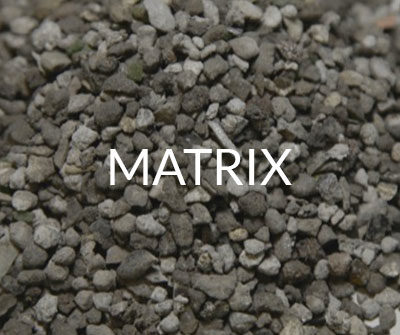Ecotrade is able to meet requests from customers worldwide, offering top quality products, regular supplies and a continuous availability of materials. Over the last decade, its strength has lain in its ability to provide a diversified offer to the cement market, combining granulated blast furnace slag with other products, such as synthetic gypsum, wet and dry ashes and other waste by-products.
Ecotrade’s goal is that of becoming a strategic partner for all Italian and international companies who are interested in sourcing new materials in the field of innovative environmentally-sustainable products. Over the last few years, the company has progressively specialised in distributing the full range of natural raw materials that are used in cement production, with a view to becoming a single point of contact for industrial supply services.

Fly Ashes are a by-product of pulverised coal combustion in thermal power plants and are constituted by the solid particles that are removed from flue gas when this is passed through electro-static or mechanical filters. Once collected, fly ashes are sent to storage silos via a pneumatic system, ready for reuse. As well as serving as a filler, thanks to their fineness, flying ashes, with their pozzolanic behaviour, are also able to play an important chemical role, allowing to achieve more compact, more waterproof and longer-lasting concretes. This is possible because of the substantial contribution they can bring to the formation of hydrates during the cement hydration reaction, leading to improved cement properties.
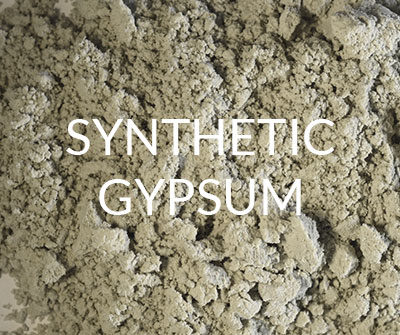
Synthetic gypsum is a by-product of coal combustion in thermal power plants. It is also called flue-gas desulphurisation (FGD) gypsum. It is produced by the chemical process that is used to remove sulphur from flue gas in thermal power plants. Although produced in desulphurisation systems in thermal power plants, synthetic gypsum is, chemically, almost identical to the natural gypsum that is extracted from mines.
Chemical gypsum is used in the grinding phase, in replacement of natural gypsum, leading to reducing the need for new excavations and the opening of new quarries.
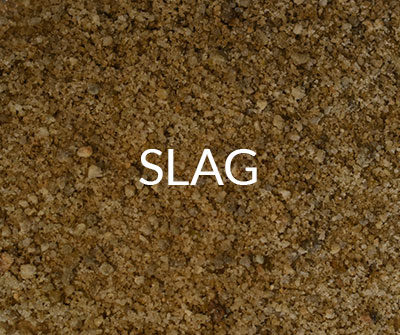
Blast furnace slag is a by-product of the iron-making process, during which large amounts of molten slag are produced. If rapidly cooled as it leaves the blast furnace, slag acquires hydraulic properties and is converted into porous vitreous-structure granules (amorphous silica), known as granulated slag. Granules are then ground to a powder whose fineness is comparable to that of cement. Slag cement is particularly suited for the construction of special structures requiring a high resistance to the erosive action of the elements, as well as for mass concrete applications. Because of its low hydration heat, it is suited, for example, for the construction of marine structures.
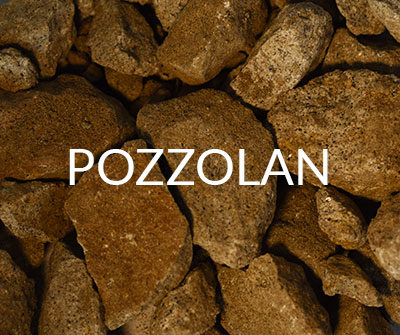
Pozzolan is a material of volcanic origin, owing its name to its main place of origin (the town of Pozzuoli, in the province of Naples), although it is found, albeit to a lesser degree, in other volcanic areas. It consists mostly of miniscule vitreous granules, which may be more or less porous, combined with small crystals of different mineral types.
When mixed with cement, in various ratios, pozzolan allows to create a cement product that is particularly suited for the construction of long-lasting structures, such as motorway tunnels.
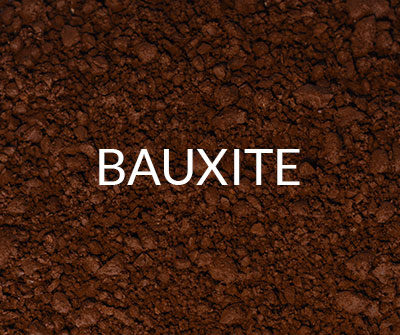
Bauxite is a sedimentary rock made of a variety of minerals, consisting mostly of aluminium and iron oxides and hydroxides, and is the chief ore in the production of aluminium.
Bauxite is used in the manufacturing of aluminous cement, a type of cement that sets slowly but hardens quickly. Because of its extraordinary properties – a high breaking load, a good chemical resistance and a high resistance to high temperatures, aluminous cement is highly recommended for the construction of refractory structures and products
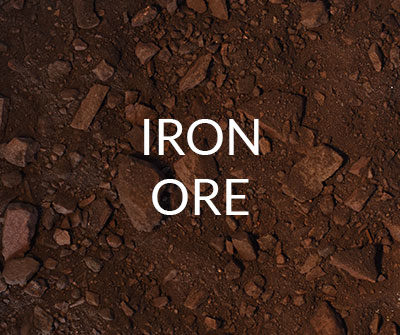
Both raw and recycled materials containing iron oxide (Fe2O3) and aluminium oxide (Al2O3) may be used as flux in the production of clinker. The iron-containing phase and three-calcium aluminate are essential for melt formation during manufacturing (flux products). The process of hydration of the iron-containing phase is practically identical to that of three-calcium aluminate.
Compared to the latter, however, the iron-containing phase features a lower hydration rate, especially in the presence of gypsum, whose retarding action is greater with the iron-containing phase than with three-calcium aluminate. It also features low shrinkage characteristics. In accordance with the applicable Integrated Environmental Authorisation requirements, flux products may include raw materials, such as iron ore, recycled by-products, such as iron silicate, and non-hazardous waste, such as mill scale.
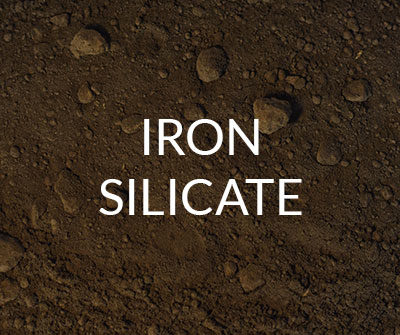
Iron silicate is a by-product of copper refining. It is obtained by cooling the molten slag in water.
It is a shiny black solid product of a vitreous appearance. Abrasive. It may be powdery.
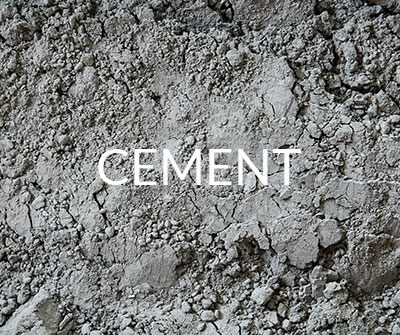
Cement belongs to the category of hydraulically-bound mixtures, i.e.: those materials which, when mixed with water, form a paste that hardens progressively to create compact blocks that are resistant to the action of water and boast significant mechanical resistance properties. The main component of cement is clinker, obtained from natural raw materials such as limestone and clay, which are crushed, ground and then fed into kilns for roasting. When it leaves the kiln, the clinker is first cooled and then sent to the next phase for grinding in mills, after other selected ingredients are added, including gypsum, blast furnace slag, fly ashes, pozzolan, limestone, etc. All these ingredients are ground together to produce a homogeneous powder: cement.
Thanks to its conformity to REACH, Matrix is used as a component of the meal (the finely ground raw material) that is roasted in the cement plant kilns (at a temperature of around 1500°C) to produce clinker. Matrix is used as a silica-containing material for the adjustment of meals that are too rich in lime or as a Secondary Raw Material in addition to natural marl, of which it imitates the composition, although with a lower lime content and a higher silica content. It is also valued for its flux content and, because it has already undergone a firing process and partial decarbonation, it also helps reducing the overall CO2 amount produced by the process.
